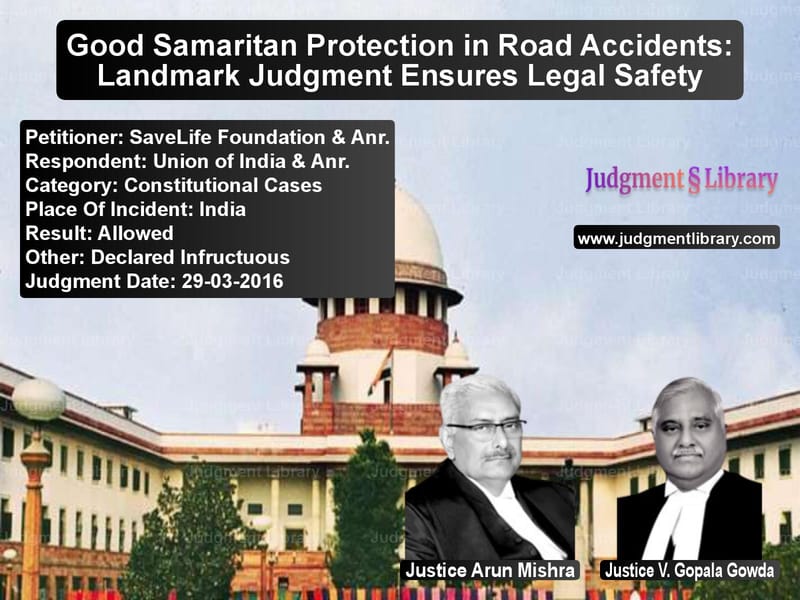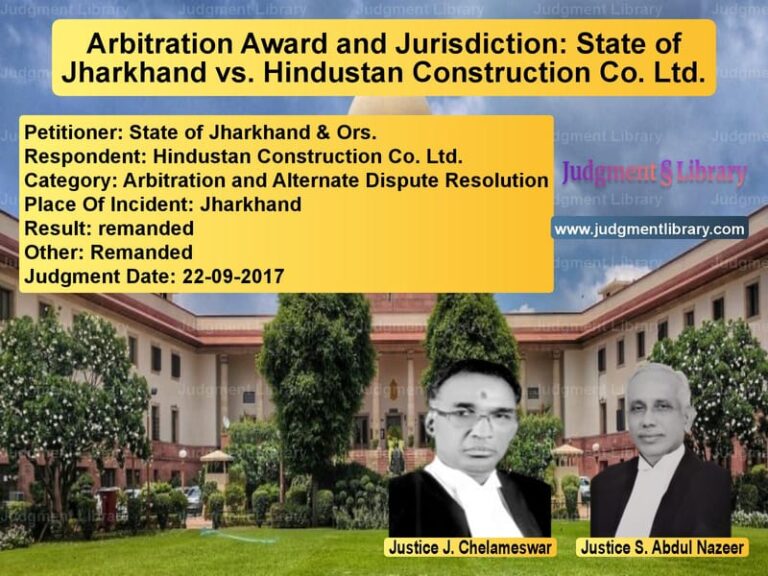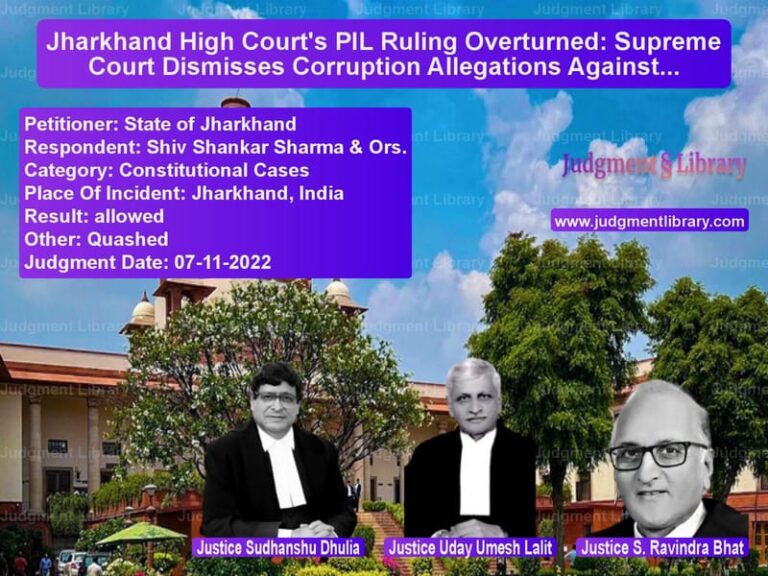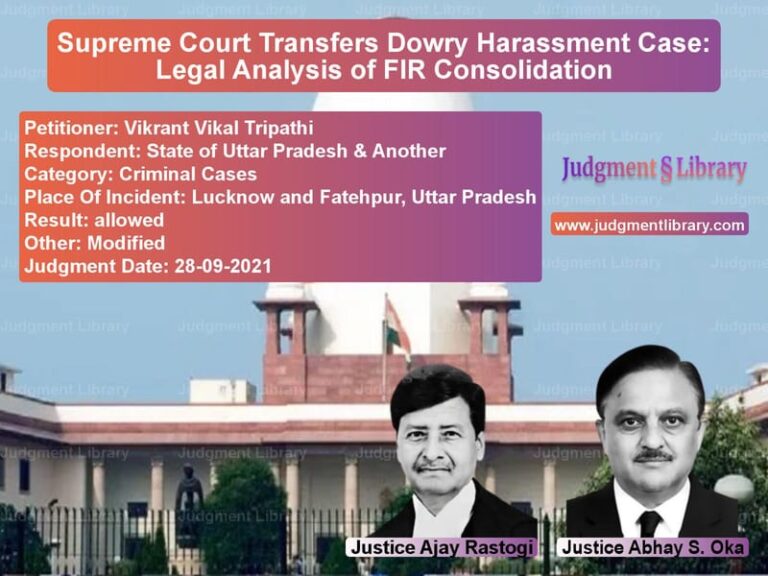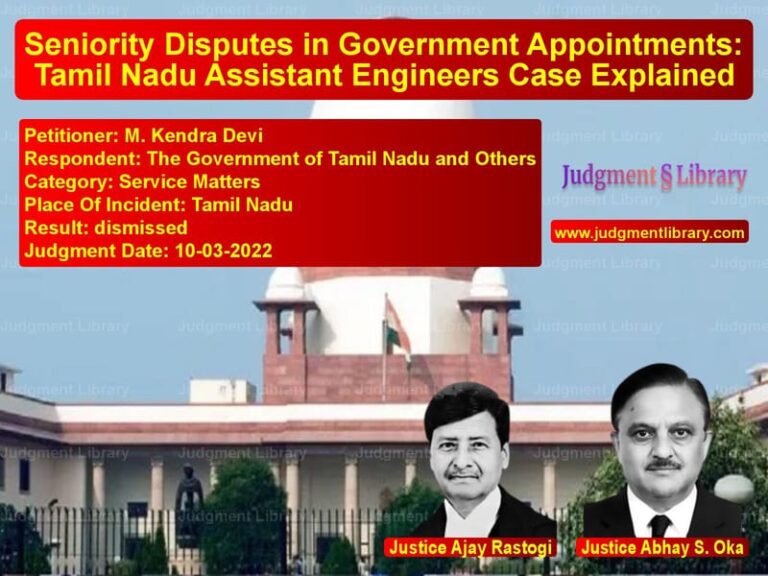Good Samaritan Protection in Road Accidents: Landmark Judgment Ensures Legal Safety
The Supreme Court of India, in Writ Petition (C) No. 235 of 2012, addressed a crucial issue regarding the protection of Good Samaritans who assist road accident victims. The case, filed by SaveLife Foundation, sought legal safeguards for bystanders and passers-by who offer emergency aid to accident victims.
Background of the Case
The petitioners, SaveLife Foundation and Anr., contended that a large number of road accident victims in India die due to delayed medical assistance. The reluctance of bystanders to help victims stems from fear of police harassment, legal consequences, and being dragged into lengthy court proceedings.
The petition highlighted global examples of legal protection for Good Samaritans and urged the Indian government to introduce similar legal safeguards.
Legal Issues Considered
- Should Good Samaritans be legally protected from police harassment and legal consequences?
- Is there a need for a comprehensive legal framework to encourage bystander intervention in road accidents?
- What interim measures should be implemented until a formal law is enacted?
Petitioners’ Arguments
The petitioners argued that thousands of lives could be saved if bystanders were encouraged to help accident victims without fear of legal repercussions. They contended:
“The WHO’s World Report on Road Traffic Injury Prevention, 2004, states that in low-income countries, a major reason for bystanders’ reluctance to help is fear of involvement in police cases. There is an urgent need to build confidence among the public to help accident victims without fear of interrogation or detention.”
They further emphasized that other countries, including the UK, USA, Australia, and Canada, have enacted Good Samaritan laws that provide immunity from liability for individuals who voluntarily assist accident victims.
Respondents’ Arguments
The Union of India acknowledged the concerns raised but contended that various guidelines had already been issued to protect Good Samaritans. They referred to circulars sent to state governments, urging them not to harass individuals who bring accident victims to hospitals.
The government also highlighted that existing laws did not mandate bystanders to reveal their identities when helping accident victims.
Supreme Court’s Observations
The Supreme Court recognized the urgent need for legal protection for Good Samaritans. The Court stated:
“Bystanders play a crucial role in providing emergency aid during the ‘Golden Hour’—the first hour after a serious injury when immediate medical attention can prevent death. However, fear of legal consequences discourages people from helping accident victims.”
The Court noted that existing guidelines issued by the Ministry of Road Transport and Highways were not legally binding, leading to inconsistent implementation across states.
Judgment and Directives
The Supreme Court issued the following directives:
- The guidelines issued on May 12, 2015, for the protection of Good Samaritans should be enforced as law until formal legislation is enacted.
- Good Samaritans should not be compelled to disclose personal details or be detained in hospitals or police stations.
- The police must not force Good Samaritans to become witnesses unless they voluntarily agree.
- Hospitals should not demand payment from Good Samaritans for the treatment of accident victims.
- The government must launch awareness campaigns through print and electronic media to inform the public about Good Samaritan protections.
The Court also modified certain procedural aspects to ensure better implementation of these guidelines.
Key Takeaways from the Judgment
- Legal protection for bystanders who help road accident victims.
- Implementation of Good Samaritan laws on an interim basis through Supreme Court directives.
- Restrictions on police harassment and unnecessary involvement of Good Samaritans in legal proceedings.
- Clear guidelines for hospitals, ensuring that Good Samaritans are not burdened with medical costs.
Implications of the Judgment
This landmark judgment ensures that people who help accident victims will no longer fear legal repercussions. It is expected to encourage more individuals to step forward in emergency situations, ultimately saving thousands of lives.
Don’t miss out on the full details! Download the complete judgment in PDF format below and gain valuable insights instantly!
Download Judgment: SaveLife Foundation vs Union of India & Anr Supreme Court of India Judgment Dated 29-03-2016-1741854007703.pdf
Direct Downlaod Judgment: Direct downlaod this Judgment
See all petitions in Fundamental Rights
See all petitions in Public Interest Litigation
See all petitions in Equality Before Law
See all petitions in Judgment by Arun Mishra
See all petitions in Judgment by V. Gopala Gowda
See all petitions in allowed
See all petitions in Declared Infructuous
See all petitions in supreme court of India judgments March 2016
See all petitions in 2016 judgments
See all posts in Constitutional Cases Category
See all allowed petitions in Constitutional Cases Category
See all Dismissed petitions in Constitutional Cases Category
See all partially allowed petitions in Constitutional Cases Category

